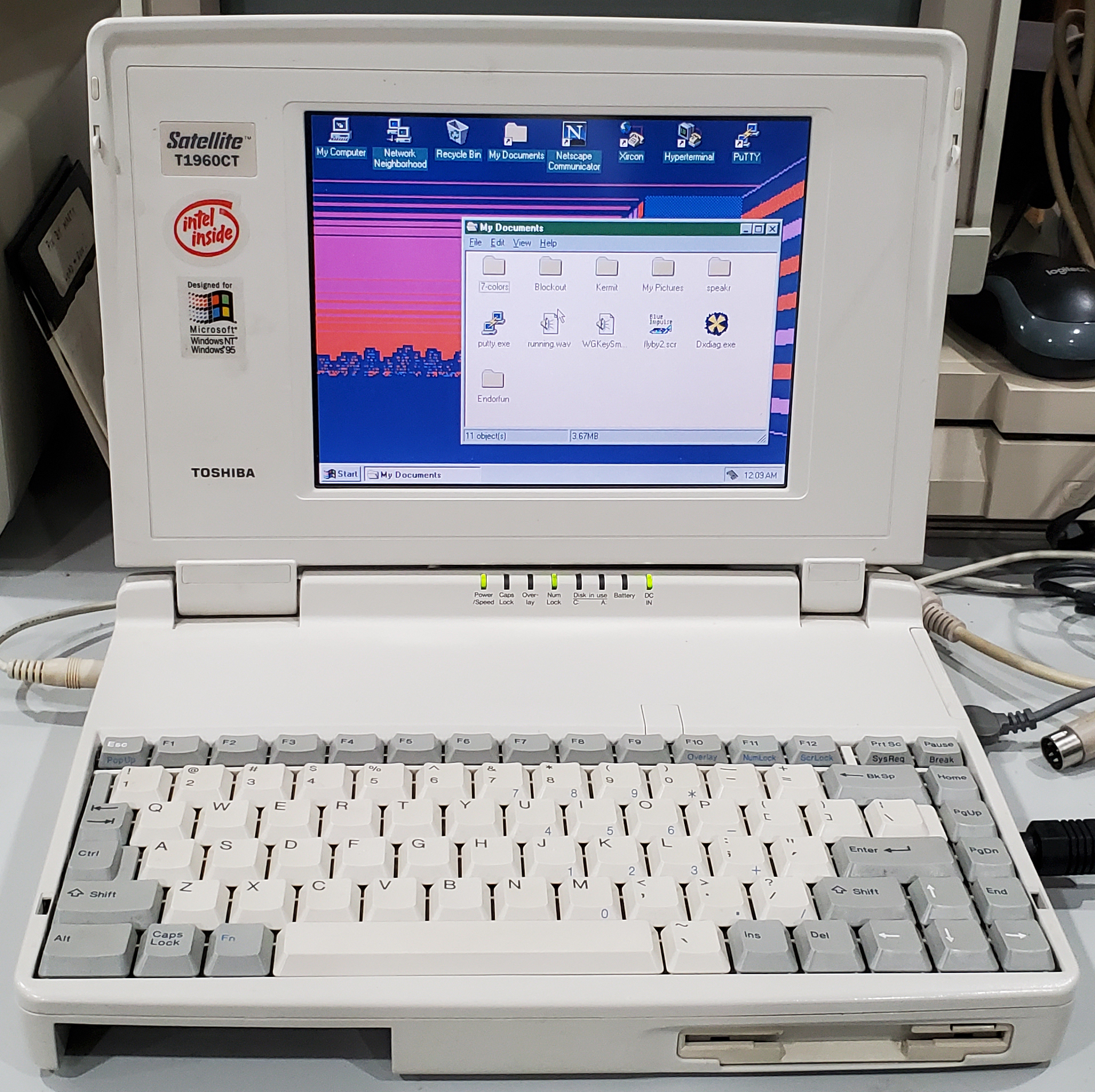VERAULT
Veteran Member
Send them to the lion pits. 
I used to believe that too. Seems that all of the Toshiba 486's have a certain specific problem wherein capacitors go bad and prevent the on board regulators from receiving power from an external power brick. Apparently they all work fine on batteries, but who's bothering to rebuild or replace Nickel Metal Hydride batteries these days? I've been compiling a few links to helpful resources that were able to help me fix my T1960CT earlier this year. Apparently one specific capacitor is the main point of failure, attributed to a design flaw that I understand Toshiba service centers were aware of. Maybe this will be of help: https://www.commodorez.com/satellite.html

I've spent far too much on T19XX series Satellites, some of which have been given to me for free. I ended up with 5 by the end, some relegated to parts machines. They made so many, and sadly far too many have been damaged by careless owners and the harsh realities of time -- but they can be fixed! I enjoy this laptop despite its shortcomings.
If you find a well built laptop with a reliable LCD panel, you will be fine. The biggest thing with LCDs is that they are stored in CLIMATE CONTROLLED conditions. Extreme heat and humidity is a death sentence to them. All of my important laptops are stored inside. And you absolutely CANNOT stack laptops on top of each other to store them, especially not old 7-10 pound units. The weight of the machines will cause severe damage to the LCDs at the bottom of the stack. Laptops should be stored like books on their side, never stacked.Collecting vintage laptops or vintage equipment with lcd screens is just not a good idea. Laptop boards are very tricky to repair, there are no spare parts for the most part and the screens are all going bad with practically no replacements out there.
Toshiba was a great laptop from the mid 90s into the early 2000's but thats irrelevant in the long run.
Yes, the Toshibas from that era are notorious for flakey PSUs. They always have been. I gave up on those long ago. Best to stick with more reliable machines.I don't have any Compaq laptops but all my Toshiba laptops (2x T1200XE, T1600) are dead now with PSU faults. 15 years ago they worked fine. They were stored carefully indoors.
I really don't have any desire to work on them. They are annoying to disassemble and hard to find parts. Components are surface mount and proprietary. Batteries are all dead so they aren't portable anyway.

My comment above is actually referring to the older models from the late 1980s that were mentioned. I have owned several and even after replacing all capacitors, they never worked.After a ton of effort that was getting me nowhere, I too thought these machines were lost causes, until someone showed me the piece of information that proved they weren't. Imagine what else you have or have encountered that has been written off, but really is just a piece of knowledge away from revival and making someone happy. I think many of y'all have missed the point of why we do this, why we bother in the first place. If you ignore the dust-in-the-wind defeatism, if you invest your time and money into the machines you get enjoyment from maintaining and using, then you've won. That's it. Even better if you can share that with others. Thinking about this stuff as an investment financially is... just sad to me.
View attachment 1247483
